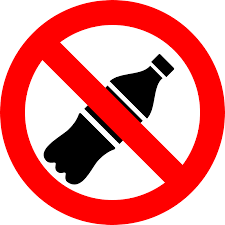The liver, with its involvement in over 500 bodily functions, is a crucial organ that demands our attention and care. In the UK, fatty liver disease poses a significant threat to public health, affecting one in three adults in its early stages. This condition arises from the accumulation of fat in the liver and, if left untreated, can progress to severe complications such as cirrhosis, liver failure, and even cancer.
Addressing this growing concern, Harvard-trained gastroenterologist Dr. Saurabh Sethi took to TikTok to share a message of hope. According to him, non-alcoholic fatty liver disease is fully reversible, and he outlines specific steps to not only halt its progression but also witness positive changes in just a matter of weeks.
Dr. Sethi’s recommended steps include:
Avoid Sugary Drinks:
High fructose content in sugary drinks is a key driver of fatty liver disease. It’s not just sodas and soft drinks; seemingly healthy juices can be culprits too. Dr. Sethi advises checking ingredient labels for sugar content in popular juices like orange, apple, tomato, and cranberry.

Eat Plenty of Protein:
A protein-rich diet supports liver health. Incorporating lean sources of protein can aid in repairing liver damage. Dr. Sethi emphasizes the importance of including protein in your meals to promote overall liver well-being.
Reduce Saturated Fat Intake:
Saturated fats contribute to liver issues, and limiting their intake is crucial for preventing and reversing fatty liver disease. Dr. Sethi provides insights into choosing healthier fats and making mindful dietary choices.
Abstain from Alcohol:
Alcohol can exacerbate liver problems, and complete abstinence is recommended for those dealing with fatty liver disease. Dr. Sethi underlines the significance of avoiding alcohol to support the liver’s healing process.
Exercise for 150 Minutes Weekly:
Physical activity plays a pivotal role in liver health. Dr. Sethi suggests engaging in at least 150 minutes of exercise per week. Regular exercise aids in weight management and contributes to overall liver function improvement.

Taking these steps not only prevents the worsening of fatty liver disease but also holds the promise of reversing some of the damage already incurred. Dr. Sethi’s practical advice, shared on social media, provides a ray of hope for those grappling with this health issue.
In conclusion, prioritizing liver health through lifestyle modifications, dietary adjustments, and consistent exercise can be transformative. Dr. Sethi’s expertise serves as a guide, offering a roadmap for individuals seeking to take control of their liver health and embark on a journey towards recovery.



